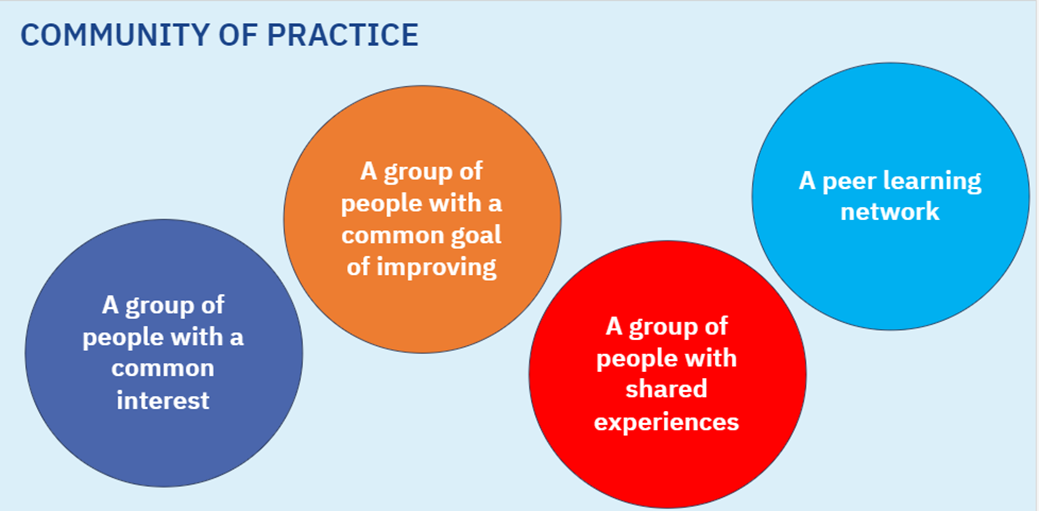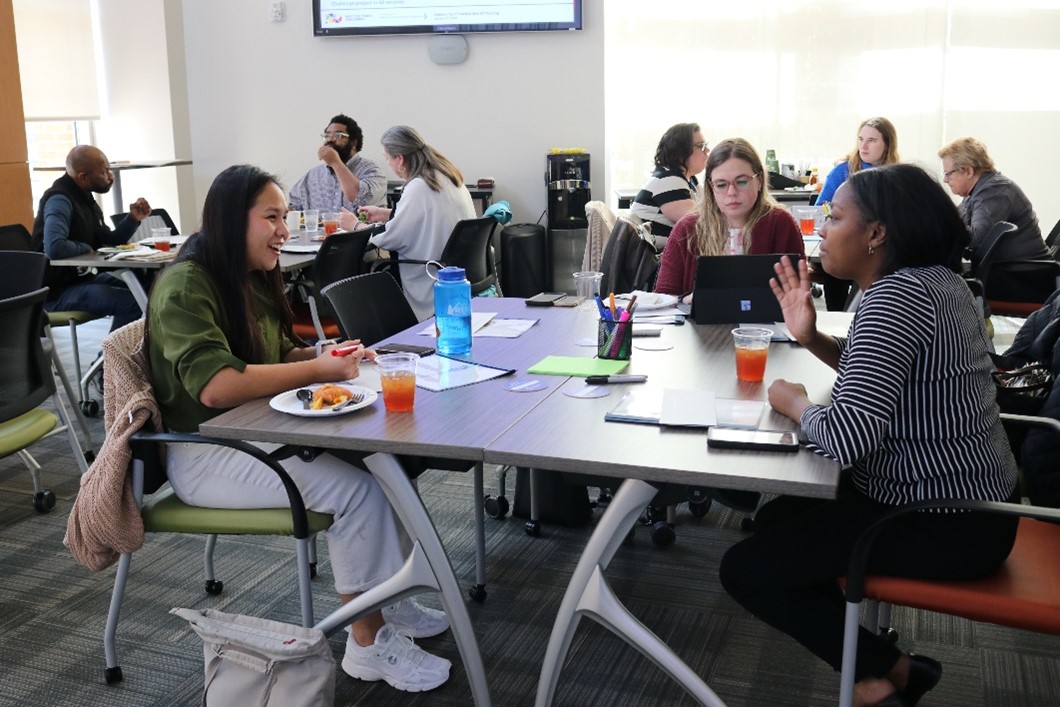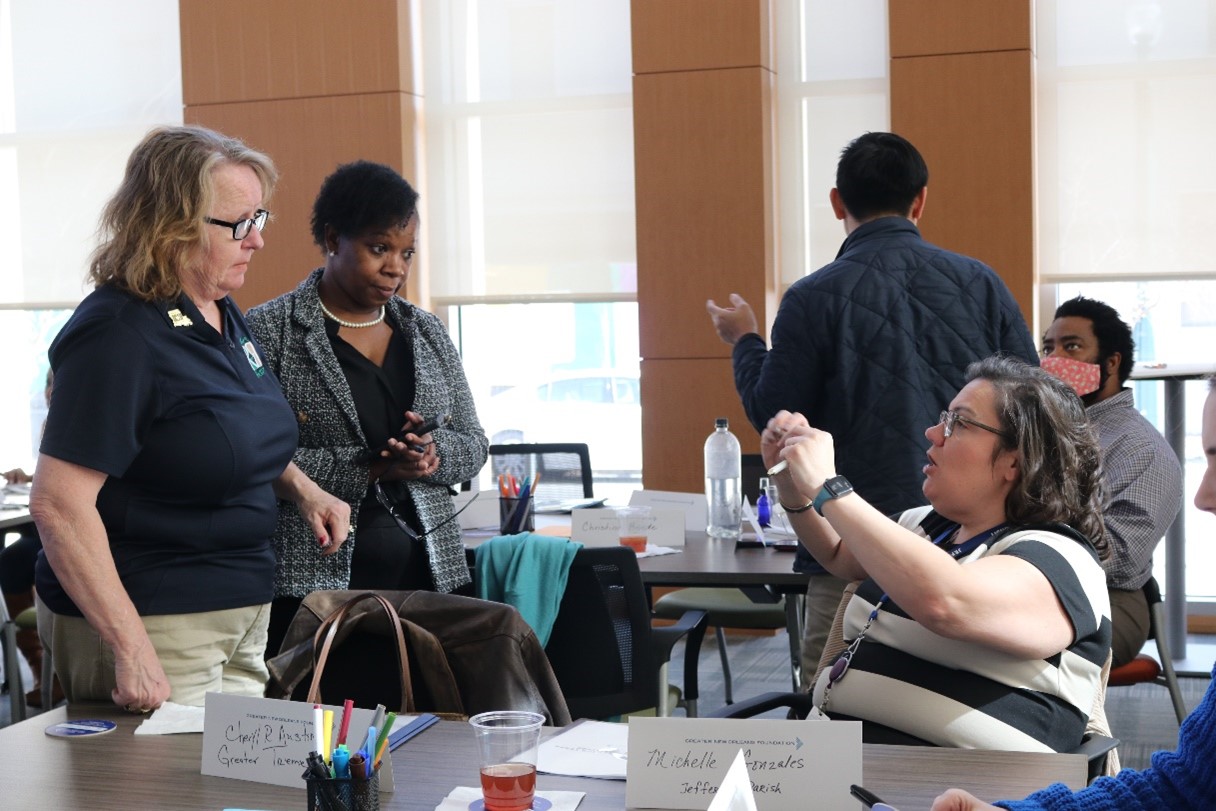On January 30, the Greater New Orleans Foundation (Foundation)hosted the first meeting of its 15-team Next 100 Years Challenge Community of Practice (COP,) during which teams selected topics for an 18-month learning journey. The Foundation launched the Next 100 Years Challenge in celebration of our centennial year to inspire great ideas for resilient infrastructure projects, including nature-based solutions, that will reduce the threat from storms and other disasters and which can attract federal and state funds for their construction.
The Foundation awarded $100,000 each to ten collaborative teams from across our region that demonstrate strong potential to secure additional infrastructure dollars. Recognizing great potential in an additional five projects, the Foundation awarded them $40,000 each to further develop their promising project concepts, a total $1.2 million investment in our region. The Community of Practice, comprised of teams working on similar projects, allows participants to both learn from each other as well as experts. COPs are a proven learning tool that the Foundation has tried and tested over time, and we are thrilled to have teams from all over the region participating in the Next 100 Years Challenge COP. This COP will come together six times during 18 months in order to provide opportunities for peer-to-peer learning, networking, and relationship-building. The COP will provide teams an opportunity to implement a learning agenda that will strengthen their applications for additional infrastructure dollars from the state and federal government as well as other funders that will support the development of their much-needed green infrastructure projects.

The Next 100 Years Challenge winners and Community of Practice Participants are:
- City of Gretna: Creating a Health and Resilient Transition for Infrastructure and Neighborhood Growth
- Committee for a Better New Orleans: Resilient Community-Designed Bus Shelters
- Friends of Lafitte Greenway: Greenway Flow Neighborhood Resilience Project
- Jefferson Parish Ecosystem and Coastal Management: Community Oasis at Ree Alario Special Needs Center & Miley Playground
- Sankofa Community Development Corporation: Sankofa Climate Resilience Project
- Song Community Development Corporation: Resilient Algiers – Hung Dao Gardens Stormwater Retention
- John the Baptist Parish: A Multi-Scale Green Infrastructure Strategy for St. John Parish
- Terrebonne Economic Development Authority: Terrebonne Parish Nature & Recreation Conservatory
- United Houma Nation: Hazard Mitigation and Tribal Resilience Hubs
- YMCA of Greater New Orleans: Resilient Wastewater Systems for Plaquemines Parish
The Challenge’s honorable mentions are:
- City of Westwego: Regenerative Westwego
- Healthy Gulf: New Orleans East Water Plan
- Restore or Retreat: Protecting Elmer’s Island – Sustainable Solutions for Tomorrow
- Bernard Economic Development Foundation: Resilient St. Bernard
- WaterWise Gulf South: Scaling-Up Community-Led Nature-Based Solutions in New Orleans

“I enjoyed the panel discussion most, I think we have a tremendous amount that we can learn from one another.”
During a panel discussion, three awardees shared more in-depth project updates, including project status, funding they have applied for, and what they have learned from the process so far:
United Houma Nation’s Hazard Mitigation and Tribal Resilience Hubs project will address the critical needs of tribal communities along the Louisiana coast experiencing sea level rise and increased damage from hurricanes.
Friends of Lafitte Greenway’s Greenway Flow Neighborhood Resilience Project will improve the Greenway and adjacent communities by reducing flooding and extreme heat temperatures, creating safe bike/pedestrian connections and supporting legacy residents/businesses.
Jefferson Parish Ecosystem and Coastal Management’s Community Oasis at Ree Alario Special Needs Center & Miley Playground will transform a centrally located site in Metairie to showcase a cooling and power oasis during times of disaster and a green community amenity year-round.
We look forward to our next session, which will focus on equitable community engagement. For more information about the Next 100 Years Challenge and project descriptions, please visit www.next100yearschallenge.org.
